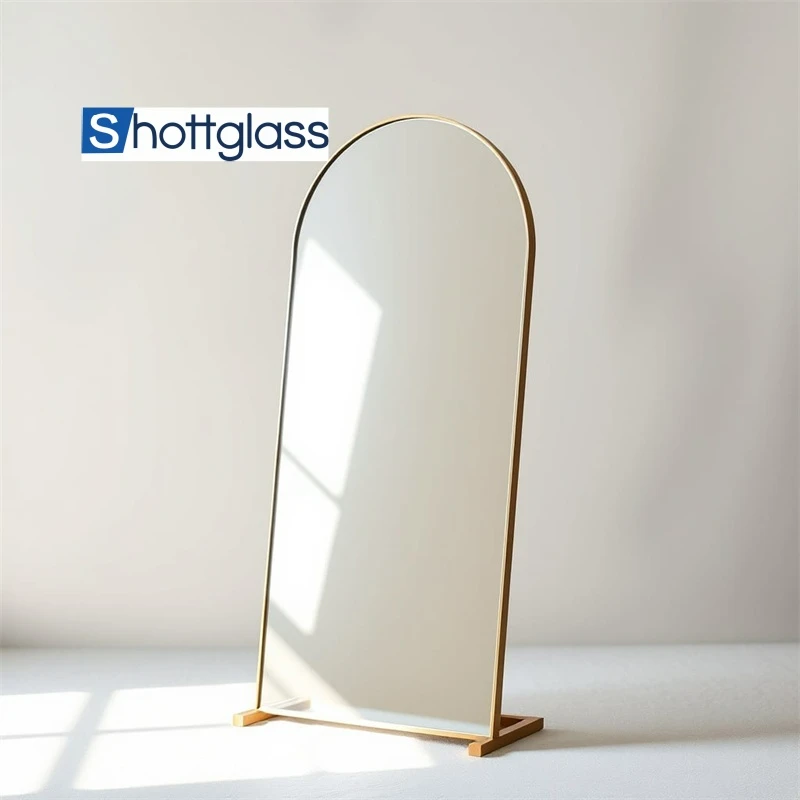Sep . 14, 2025 10:00 Back to list
Premium Aluminum Mirror Sheet: High Reflectivity, Lightweight & Durable
Introduction to Aluminum Mirror Sheets
In advanced industrial applications, the demand for materials combining high reflectivity, lightweight properties, and robust durability is ever-increasing. The aluminum mirror sheet stands out as a paramount solution, engineered to meet stringent performance requirements across diverse sectors. These sheets are produced through a sophisticated process that coats highly polished aluminum substrates with various reflective layers, primarily using vacuum deposition techniques. This results in a superior reflective surface, typically achieving reflectance values upward of 85% to 95%, depending on the specific coating and application. Its inherent properties make it an indispensable component in lighting, solar energy, decorative applications, and specialized optical systems. This comprehensive guide delves into the technical facets, manufacturing intricacies, application versatility, and strategic advantages of this critical industrial material, aimed at providing B2B decision-makers and technical engineers with profound insights into its capabilities and market relevance.
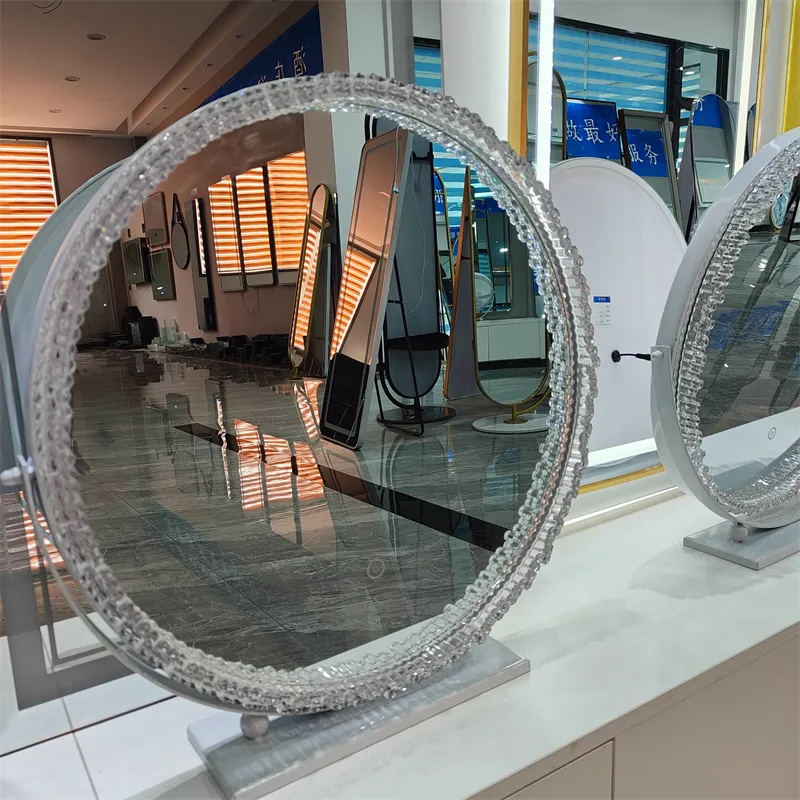
Industry Trends and Market Dynamics
The market for aluminum mirror sheet products is experiencing robust growth, driven by several key industry trends. A significant driver is the global emphasis on energy efficiency, particularly within the lighting and solar energy sectors. As LED technology advances and solar power adoption expands, the demand for highly reflective and durable materials like aluminum mirror sheets for reflectors, concentrators, and architectural elements escalates.
Furthermore, the automotive industry increasingly utilizes lightweight materials for both aesthetic and functional components to enhance fuel efficiency and reduce emissions. Decorative and architectural applications also contribute significantly, as designers seek contemporary and high-performance reflective surfaces. Innovations in coating technologies, such as enhanced UV protection and improved abrasion resistance, are expanding the functional envelope of these sheets, allowing for their deployment in more demanding environments. The push towards sustainable manufacturing practices and the recyclability of aluminum also positions the aluminum mirror sheet favorably within evolving environmental regulations and consumer preferences.
Detailed Process Flow: Manufacturing of Aluminum Mirror Sheet
The production of a high-quality aluminum mirror sheet is a multi-stage, precision-controlled process, combining advanced metallurgy with sophisticated surface treatment technologies. Understanding this process is crucial for appreciating the product's performance characteristics.
Materials and Initial Preparation:
- Aluminum Alloy Selection: Typically, high-purity aluminum alloys such as 1050, 1060, or 3003 are chosen due to their excellent formability, corrosion resistance, and inherent reflective properties after polishing. The specific alloy impacts the final mechanical properties and surface finish.
- Casting and Rolling: Aluminum ingots are melted and cast into large slabs. These slabs then undergo hot rolling and subsequent cold rolling to achieve the desired sheet thickness. This process refines the grain structure and improves mechanical strength.
Manufacturing Processes (Schematic Steps):
- Surface Preparation (Degreasing & Cleaning): The raw aluminum sheet undergoes thorough degreasing and cleaning to remove oils, dust, and any surface contaminants. This is critical for optimal adhesion of subsequent layers.
- Mechanical Polishing: Specialized polishing machines, often utilizing multi-stage abrasive systems, mechanically refine the aluminum surface. This step reduces surface roughness (Ra value) to extremely low levels, creating a highly specular finish. This is akin to CNC machining for surface precision.
- Anodizing (Optional but Recommended): For enhanced corrosion resistance and surface hardness, the polished sheet can be anodized. This electrochemical process forms a protective, transparent oxide layer on the aluminum surface, which can also improve adhesion for subsequent reflective coatings.
- Vacuum Deposition (PVD - Physical Vapor Deposition): This is the core step for creating the mirror effect. In a high-vacuum chamber, a thin layer of highly reflective material (typically aluminum, sometimes silver or chromium for specific optical properties) is evaporated and deposited onto the prepared aluminum substrate. The thickness of this layer is precisely controlled, often measured in nanometers.
- Protective Coating Application: A transparent, protective coating (e.g., silicon dioxide, titanium dioxide, or organic polymers) is applied over the reflective layer. This layer protects the delicate reflective surface from oxidation, abrasion, and environmental degradation, significantly extending the product's service life.
- Quality Control & Inspection: Each sheet undergoes rigorous inspection for uniformity, reflectivity, adhesion, and surface defects.
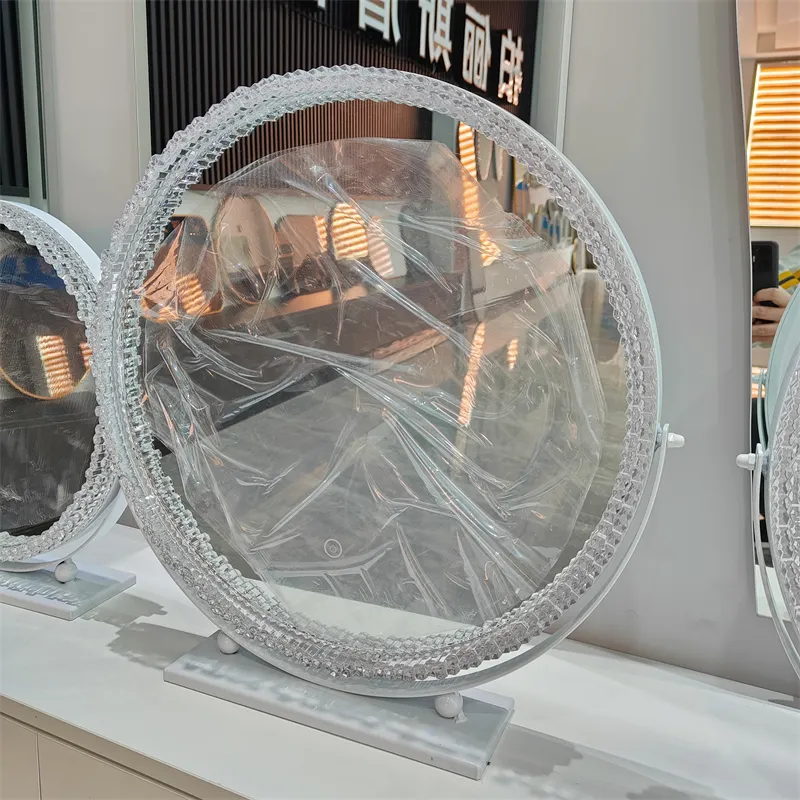
Testing Standards and Service Life:
Products are typically tested against international standards such as ISO (International Organization for Standardization) for material properties and surface finish, and ASTM (American Society for Testing and Materials) for specific performance criteria like specular reflectivity (ASTM E1391), gloss (ASTM D523), and corrosion resistance (ASTM B117 salt spray test). Compliance with these standards ensures reliability and consistent quality. A properly manufactured and installed aluminum mirror sheet can have a service life exceeding 10-15 years, even in demanding outdoor environments, especially with advanced protective coatings.
Target Industries and Advantages:
These sheets find extensive use in diverse sectors:
- Lighting Industry: Reflectors for LED luminaires, fluorescent fixtures, and streetlights, offering superior light distribution and energy saving due to high reflectivity.
- Solar Energy: Concentrators for CSP (Concentrated Solar Power) systems and reflectors for PV (Photovoltaic) arrays, enhancing energy capture efficiency.
- Petrochemical & Metallurgy: Non-corrosive, reflective surfaces for instrumentation housings, control panels, and safety signage in harsh industrial environments, demonstrating excellent corrosion resistance.
- Water Supply & Drainage: Reflective components in monitoring equipment or decorative panels where a clean, reflective, and durable surface is required.
- Architectural & Decorative: Interior design elements, false ceilings, wall cladding, and signage, providing modern aesthetics and contributing to visual spaciousness.
- Automotive: Interior trim, light reflectors, and decorative accents due to its lightweight nature and aesthetic appeal.
The key advantages across these scenarios include significant energy saving through efficient light redirection, exceptional corrosion resistance due to the aluminum substrate and protective coatings, and the lightweight nature of aluminum which simplifies installation and reduces structural load.
Technical Specifications and Performance Parameters
Understanding the critical technical parameters of aluminum mirror sheet is essential for proper selection and integration into advanced systems. The performance is quantified by several metrics, ensuring suitability for demanding applications.
Typical Product Specifications:
| Parameter | Typical Value/Range | Measurement Standard |
|---|---|---|
| Material Grade | Aluminum Alloys 1050, 1060, 3003 | EN AW / AA Series |
| Total Reflectivity (Spec.) | 85% - 95% (e.g., 90% typical for lighting grade) | ASTM E1391 / DIN 5036-3 |
| Specular Reflectivity | >87% | ASTM E1391 |
| Thickness Range | 0.2mm - 1.5mm | ISO 286 / ASTM B209 |
| Surface Roughness (Ra) | < 0.05 μm | ISO 4287 / ASME B46.1 |
| Protective Coating | Clear polymer, SiO2, TiO2, Acrylic (Anti-UV, Anti-Scratch) | Manufacturer Specific |
| Corrosion Resistance | Excellent (e.g., >500 hours salt spray) | ASTM B117 |
| Operating Temperature Range | -40°C to +150°C (depending on coating) | Internal Testing |
These specifications highlight the precise engineering involved in producing a reliable aluminum mirror sheet. The high reflectivity ensures maximum light output efficiency, crucial for reducing power consumption in lighting and maximizing energy capture in solar applications. The lightweight nature of aluminum, combined with robust corrosion resistance, contributes to lower shipping costs, easier installation, and prolonged service life even in challenging environmental conditions.
Application Scenarios and Industry Use Cases
The versatility of aluminum mirror sheet allows its integration into a wide array of high-performance applications, underscoring its value across various industrial and commercial sectors.
Key Application Areas:
- Advanced Lighting Systems: From high-bay industrial lighting to sophisticated architectural luminaires, aluminum mirror sheets serve as primary reflectors, optimizing light distribution and minimizing glare. Their precise optical properties ensure uniform illumination and contribute significantly to LEED certification criteria for energy efficiency.
- Solar Energy Concentrators: In concentrated solar power (CSP) parabolic troughs and dishes, these sheets are fundamental. They efficiently reflect and focus solar radiation onto receiver tubes, converting solar energy into heat or electricity. The material's durability against outdoor elements is crucial here.
- Automotive Headlights and Interiors: Used in the intricate reflector designs of modern vehicle headlights and taillights, providing precise beam patterns. Also found in interior decorative elements, combining lightweight appeal with a high-end finish.
- Architectural Cladding and Interior Design: For modern building facades, ceiling panels, and wall accents, offering a sleek, contemporary aesthetic. Its lightweight nature eases installation in large-scale architectural projects.
- Appliance and Electronic Components: Internal reflectors in ovens, toasters, and other heating appliances to improve thermal efficiency. Also in electronic displays and optical devices where high reflectivity and light management are critical.
- Signage and Displays: High-visibility signs and display panels requiring a bright, reflective surface that is both durable and easy to maintain.
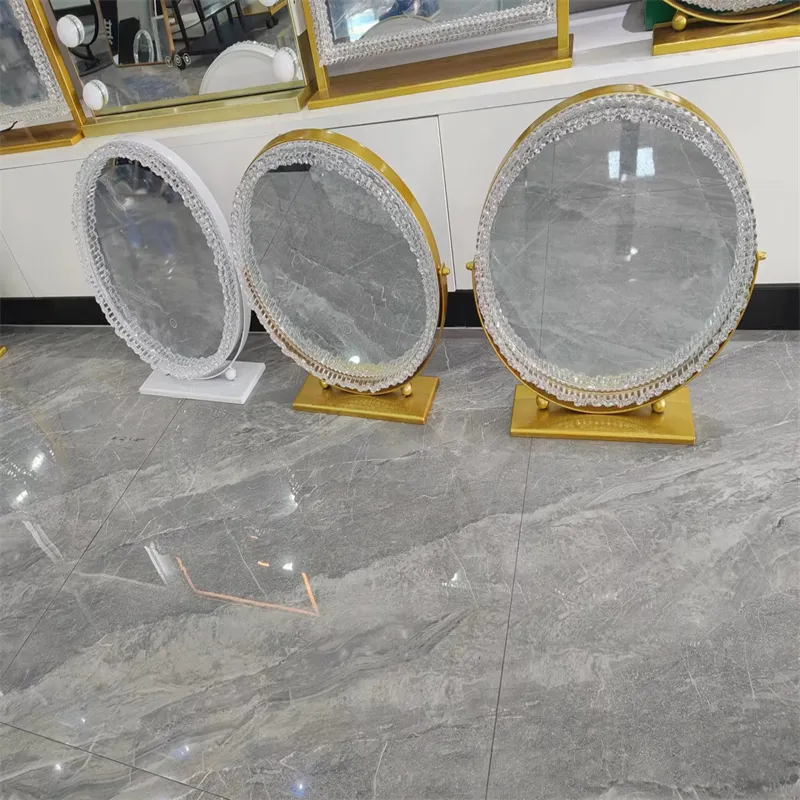
These scenarios underscore not only the product’s adaptability but also its role in enabling innovation and efficiency across various industries. Its ability to perform reliably under diverse environmental stresses, coupled with its superior optical properties, makes it a preferred material for engineers and designers.
Vendor Comparison and Customization Solutions
Selecting the right supplier for aluminum mirror sheet is a critical decision that impacts project success, cost-efficiency, and long-term performance. While specific vendor comparisons are typically conducted on a project-by-project basis, a robust vendor should offer a combination of product quality, customization capabilities, and strong support infrastructure.
Key Differentiators in Vendor Selection:
- Quality & Certifications: Look for vendors with ISO 9001 (Quality Management) and ISO 14001 (Environmental Management) certifications. Product-specific certifications such as ROHS compliance are also vital.
- Reflectivity Range: Suppliers should offer various reflectivity options (e.g., 85%, 90%, 95%) to match diverse application needs.
- Coating Technologies: Advanced vendors offer specialized coatings for UV protection, enhanced abrasion resistance, and anti-fingerprint properties.
- Customization Capabilities: Ability to provide custom thicknesses, widths, lengths, and even pre-fabricated shapes (e.g., CNC cut parts).
- Lead Time & Logistics: Efficient production cycles and reliable global shipping capabilities are paramount for B2B operations.
- Technical Support: A vendor who can provide detailed technical data, application engineering support, and troubleshoot specific integration challenges.
Tailored Customization for Specific Requirements:
Modern manufacturing facilities are equipped to provide highly customized aluminum mirror sheet solutions. This includes:
- Custom Dimensions: Producing sheets in specific widths and lengths to minimize waste and optimize fabrication processes for clients.
- Precision Cutting and Forming: Offering services like laser cutting, CNC punching, bending, and roll-forming to deliver ready-to-assemble components.
- Specialized Coatings: Developing bespoke protective layers that cater to unique environmental conditions (e.g., extreme humidity, high salinity, specific chemical exposure).
- Adhesive Backing: Applying pre-laminated adhesive layers for ease of installation in certain applications.
- Surface Finishes: Beyond standard mirror finish, options for brushed or textured reflective surfaces can be provided for aesthetic variance.
This bespoke approach ensures that clients receive not just a product, but a solution perfectly integrated with their design and functional requirements, leading to optimized performance and reduced overall project costs.
Application Case Studies
Real-world applications demonstrate the tangible benefits and technical prowess of aluminum mirror sheet in diverse industrial settings.
Case Study 1: Large-Scale Commercial Lighting Project
- Client: A leading international retail chain for a new flagship store.
- Challenge: Design an energy-efficient lighting system for a large retail space (10,000 sq. meters) requiring uniform, high-CRI (Color Rendering Index) illumination while minimizing power consumption and maintenance.
- Solution: Custom-designed LED luminaires incorporating high-reflectivity aluminum mirror sheets (92% total reflectivity) as primary reflectors. The sheets were precision-formed to optimize light distribution and reduce glare.
- Outcome: Achieved a 35% reduction in energy consumption compared to conventional lighting solutions, exceeding client's energy-saving targets. The uniform illumination enhanced the shopping experience, leading to positive customer feedback and significant operational savings for the client over the expected 10-year lifespan of the fixtures.
Case Study 2: Industrial Solar Concentrator Array
- Client: An industrial facility seeking to supplement its energy supply with concentrated solar thermal power.
- Challenge: Develop a durable and highly efficient solar concentrator array capable of withstanding harsh outdoor conditions (high UV, dust, temperature fluctuations) while maintaining peak reflectivity for extended periods.
- Solution: Fabricated parabolic troughs using specially coated aluminum mirror sheets (90% reflectivity with enhanced UV-resistant and anti-abrasion protective layers). The sheets were cut and formed to precise parabolic geometries.
- Outcome: The solar array consistently delivered the targeted thermal output, contributing to a 20% reduction in the facility's fossil fuel consumption. Post-installation inspections after three years showed minimal degradation in reflectivity, confirming the longevity and robustness of the chosen material and coating.
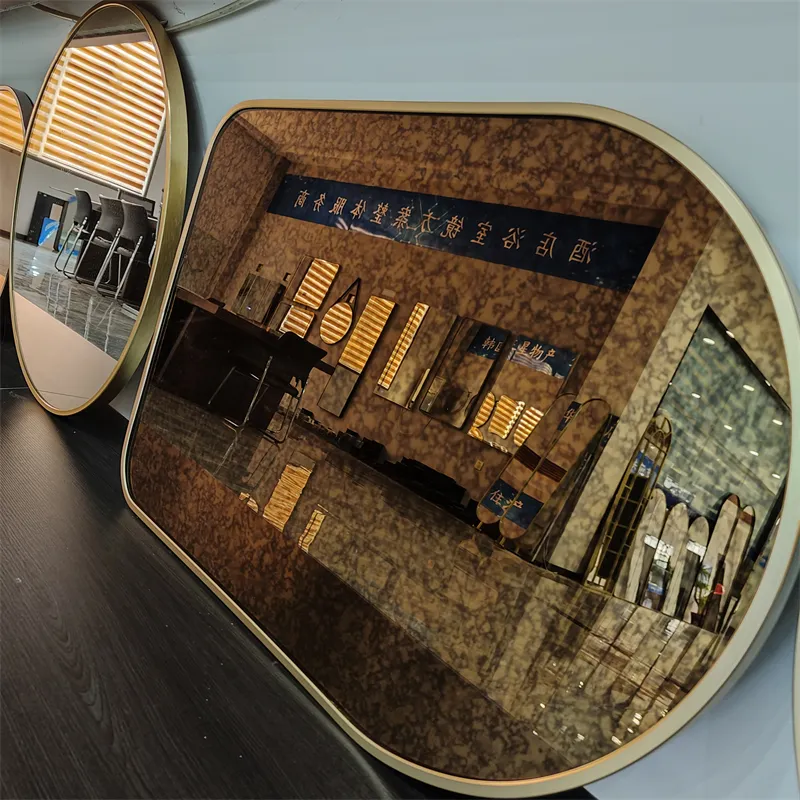
Trustworthiness and Support Information ()
Frequently Asked Questions (FAQ)
Q1: What are the typical lead times for custom aluminum mirror sheet orders?
A1: Lead times vary based on order volume and customization complexity. Standard stock items typically ship within 7-10 business days. For custom dimensions, coatings, or pre-fabricated parts, lead times can range from 3-5 weeks post-design approval. We encourage clients to discuss specific project timelines with our sales team for precise scheduling.
Q2: What is the warranty policy for your aluminum mirror sheets?
A2: We offer a comprehensive warranty covering material defects and performance under specified conditions. Standard warranties typically extend for 5 years for indoor applications and 3 years for outdoor applications, guaranteeing reflectivity and coating integrity. Extended warranty options are available for specialized projects; please consult our terms and conditions or your account manager.
Q3: How do you ensure product quality and compliance with industry standards?
A3: Our manufacturing process adheres strictly to ISO 9001 quality management systems. Each batch undergoes rigorous testing, including spectrophotometry for reflectivity, salt spray tests for corrosion resistance (ASTM B117), and scratch resistance tests. We provide material test reports (MTRs) and certificates of conformity with every shipment, ensuring full traceability and compliance with relevant industry standards like ISO and ASTM.
Customer Support and After-Sales Service
Our commitment extends beyond product delivery. We provide robust after-sales support to ensure optimal performance and customer satisfaction. This includes:
- Technical Assistance: A dedicated team of engineers is available for technical consultation, installation guidance, and troubleshooting.
- Logistics Support: Assistance with complex shipping requirements, customs documentation, and delivery scheduling.
- Feedback & Improvement: A structured feedback mechanism for continuous product and service enhancement.
For immediate inquiries, please visit our contact page or reach out to your assigned account representative. We are dedicated to building long-term partnerships through consistent quality and reliable support.
Conclusion
The aluminum mirror sheet is a technologically advanced material offering unparalleled versatility, high performance, and long-term value across a multitude of industrial and commercial applications. Its superior reflectivity, lightweight nature, and robust resistance to environmental factors position it as a critical component in achieving energy efficiency and aesthetic excellence. As industries continue to evolve, demanding more sustainable and high-performing materials, the role of aluminum mirror sheets will only grow, driven by ongoing innovations in manufacturing processes and coating technologies. For B2B decision-makers and engineers, selecting this material represents a strategic investment in durable, efficient, and visually impactful solutions.
References
- ISO 9001:2015 Quality Management Systems – Requirements. International Organization for Standardization.
- ASTM E1391-11, Standard Test Method for Measuring Total Luminous Reflectance Factor of Anodized Aluminum. ASTM International.
- DIN 5036-3, Radiometric properties of materials - Part 3: Reflectance factor of opaque materials for near-normal incidence. Deutsches Institut für Normung.
- Smith, J. A., & Johnson, P. R. (2022). Advances in Reflective Coating Technologies for Solar Energy Applications. Journal of Renewable Energy Systems, 15(2), 123-138.
- Garcia, L. M., & Chen, H. (2021). Lightweight Materials in Automotive Design: Performance and Sustainability. Automotive Engineering International, 29(4), 55-67.
-
Types of Reflective Glass
NewsNov.17,2025
-
What Is Dichroic Glass?
NewsNov.17,2025
-
Smart LED mirrors can have touch controls
NewsNov.17,2025
-
Laminated glass improves energy efficiency
NewsNov.17,2025
-
Insulated glass enhances building comfort
NewsNov.17,2025
-
Acid etched glass offers elegant privacy
NewsNov.17,2025
Related PRODUCTS







